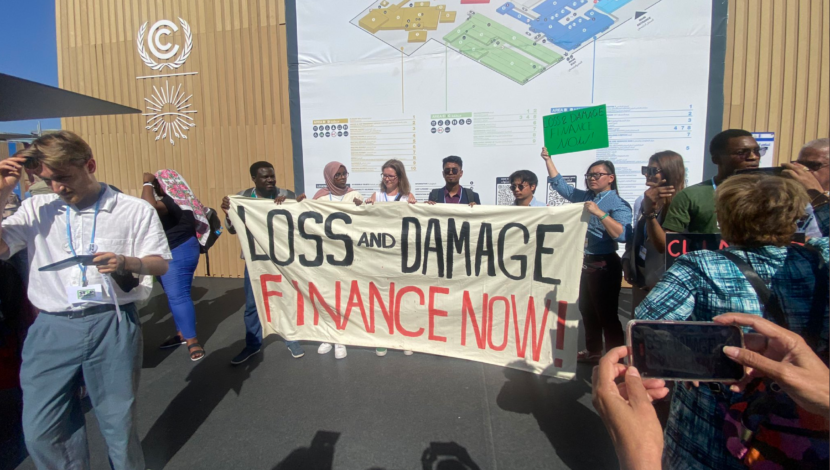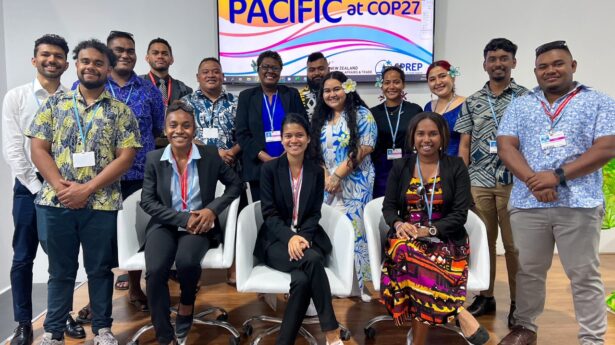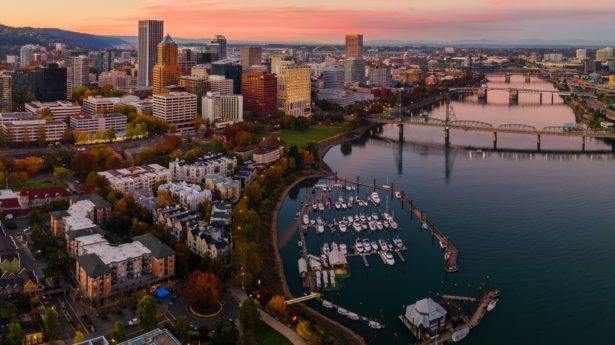The Unitarian Universalist Service Committee advances human rights through grassroots collaborations.
COP27: Radical Alternatives Needed

By UUSC Staff on November 15, 2022
Every year, parties to the UN’s Framework Convention on Climate Change (UNFCCC) gather to check on their progress toward implementing their pledge to combat climate change. This annual venue—known as the “Conference of the Parties,” or COP—is one of the few opportunities world leaders have to discuss the climate crisis and recommit their governments to reducing greenhouse gas emissions. Sounds good, right?
There are just a couple big problems: the people most affected by climate change, who have the most to lose from rich countries’ failure to stop climate change and compensate for its effects, are often denied a seat at the table. And when the people who have the most at stake don’t get a voice in how to combat climate change, then the proposed “solutions” that emerge tend to be dominated by corporate interests and the desire for self-enrichment at the expense of the common good.
Net-Zero Impact?
To take one example: the United States arrived at COP this year with a plan to promote pollution trading globally through what is known as a “carbon credit” scheme. Basically, the idea is that big polluters can continue to emit greenhouse gasses, so long as they purchase emission reductions elsewhere that “offset” these emissions. In theory, this is supposed to allow companies to keep burning planet-warming fuels while yielding a “net-zero” impact on the environment.
Such a “solution” has obvious appeal for big fossil fuel corporations and the governments they have captured—because it amounts in essence to a license to pollute. The question is: Does it work? We don’t need to theorize about what the answer might be, because experience has taught us. U.S. climate envoy John Kerry’s scheme has been tried before—with disastrous consequences.
The world community now has many years’ experience with carbon trading. It has consistently proved to be a false solution that exacerbates the harm facing communities on the front lines of climate change. Among its many severe flaws, carbon trading has even become a mechanism for dispossessing Indigenous people from their land.
Indigenous land rights have been shown time and again to be essential to protecting the Earth’s biodiversity and addressing climate change. Yet carbon offset schemes have empowered corrupt governments to deny Indigenous people access to their own territories in the name of “conserving” and “protecting” carbon sinks. In extreme cases, state actors and corporate-funded private security forces have even opened fire on people for peacefully entering their own traditional lands. Carbon offsets have therefore not only proven incapable of addressing the crisis of greenhouse gas pollution—they are also linked to grave human rights violations.
#CleanUpCOP
If carbon trading has been tried before and failed, though, why is it still on the table as the United States’ preferred solution? Part of the problem—as we said above—is baked into the structure of COP itself. The annual gathering is supposed to be a venue for discussing solutions to climate change; but the expenses and regulatory hurdles involved in attending it ensure that it is dominated each year by the same wealthy countries and powerful actors. This year, the problem is likely to be even worse, as the planet grapples with a potential global economic downturn and debt crisis that especially affects poor countries (even though it is largely caused by the financial policies of rich countries).
As a result, big polluters get a seat at the table at COP—but the most impacted communities do not. Small-island developing states (SIDS), Indigenous leaders, civil society from the Global South, and other people most burdened by climate change—who have contributed least to causing the crisis while experiencing the worst of its effects—are often boxed out of the discussion. As a result, the same bogus solutions can be forwarded year after year without world leaders hearing from the people who will be most harmed by their policies.
Solutions From the Ground Up
UUSC’s partners and allies are working to change this. We are calling for big polluters to be taken out of the discussion at COP. The self-interested actors most responsible for causing the climate crisis should not be allowed to dominate the conversation and limit the range of policy solutions to address it. Taking them out of the room will clear the way for the more radical alternatives we need to be considered.
A delegation of frontline leaders in the Climate Justice Alliance is traveling to COP to push for these radical alternatives to the corporate-backed false solutions favored by wealthy governments.
- Debt cancellation to prevent a looming economic crisis in the Global South;
- Open access to green technology;
- Direct support to impacted communities; and
- Compensation—and reparations—for the loss and damage that rich countries’ carbon pollution has caused and will cause in the developing world
Equitable Compensation
Some people might think of debt cancellation as a far off possibility and that lenders would never be generous enough to forgive a nation of what it’s owed, but it’s more common than it might seem. Debt cancellation, forgiveness, or reduction are often mutually beneficial transactions. If the country is crippled by its debt, then there’s not enough stability for a taxpayer base to grow. If the base doesn’t grow, then the country doesn’t pay off its debt. Debt cancellation here could lead to more green infrastructure jobs that build resilience in the face of a changing climate.
Loss and damage is finally on the official agenda for COP27, but the topic has for decades been on the minds and agendas of nations unable to carry the burden of disasters created in large part to the activities of the most developed nations. Only a small handful of European countries have committed money to loss and damage funds: Scotland, Denmark, Germany, Austria, Ireland, New Zealand, Canada, and Belgium. For a loss and damage fund to be truly useful, the United States must commit.
World leaders must heed the advice of grassroots leaders instead of yielding to the self-interest of the already-powerful. More pollution trading schemes may benefit fossil fuel companies and rich countries in the short term, but they will not protect humanity and the world’s poor from the ravages of the climate crisis. World leaders gathered at COP this week must skip the false solutions and focus on making genuine changes to halt greenhouse gas emissions, keep fossil fuels in the ground, and compensate frontline communities for the effects of climate destruction.
Image Credit: Loss and Damage Youth Coalition

